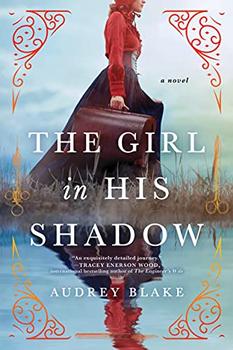Summary | Excerpt | Reading Guide | Discuss | Reviews | Beyond the Book | Readalikes | Genres & Themes | Author Bio

"Don't try to speak." Mrs. Phipps advanced with her wet sponge. "Save your strength, child."
The girl improved at first, then weakened for days until she was as thin as an eggshell. The tea and broth spooned into her so laboriously passed through her without even changing color. When she turned as gray as ash and dry as paper, Dr. Croft rubbed his chin and Mrs. Phipps went to the pantry to wring her hands unobserved. Then she set her jaw and marched back upstairs to dose and poultice and bathe, resolute as any soldier facing a hopeless battle. When the fever broke and natural sleep fell upon the girl, Mrs. Phipps wept.
This earned a chiding glance from the doctor. "Don't get sentimental," he said. He finished measuring the child's pulse and went to the chair by the window to record his notes.
Too late. Mrs. Phipps was past forty with no husband. "Mr. Phipps" was a necessary invention due to her promotion, twenty years ago, from upstairs maid to housekeeper. To Mrs. Phipps, the quiet girl stirring in her sleep was no longer a patient. She was a miracle, a baby brought by a river in a rush basket. And Mrs. Phipps didn't even know the child's Christian name.
As soon as the little one recovered her speech, the housekeeper broached the subject between spoonfuls of broth. "Now you are mending, I should like to call you something besides Miss Beady," she said, watching the girl's throat. "Good. Swallow it down. Take another spoonful." She blotted a drip of broth with a soft napkin. "What did your parents call you?"
The child blinked but a lone tear escaped, leaving behind a glistening silver trail like the snails so injurious to the rosebushes Mrs. Phipps nourished in the patch of earth behind the house.
"Are they gone?" Her dark eyes wheeled around the shadows of the room, searching.
Mrs. Phipps nodded, unable to speak.
"All of them? Peter?"
"All but you." Overcome by her failure with words, Mrs. Phipps pressed the child close, surprised when tiny fingers clung to her.
The child closed her eyes against the pain and whispered, "My name is Eleanor."
"It's a pretty name." Mrs. Phipps caressed the girl's hand, surprised the gesture came without thinking. She had no experience with children.
"They called me Nora." "And so shall I. Only two more spoonfuls." When she set aside the empty cup, Mrs. Phipps smoothed Nora's hair, then thought better of it and went for a comb. She unpicked the tangles and would have tied the limp strands back with a ribbon, but Nora was asleep.
~
The first time Nora was well enough to leave her bed and eat gruel in a chair by the fire, Mrs. Phipps shut Nora's bedroom door, tiptoed downstairs, and confronted the doctor in his study. She made certain his door was shut, too.
"Eh?" Dr. Croft looked up.
"Still doing better."
"Good, good." He looked down at his notebook, but Mrs. Phipps ignored this cue of dismissal.
"Sir? I'd like to know what you intend with Nora."
"Who?" He looked up in confusion.
Mrs. Phipps liked and respected her employer. Usually. "Miss Eleanor Beady, the girl you brought home for me to drag back from the grave."
"I suppose we'll have to find out if she has any family."
Mrs. Phipps had already made inquiries and ascertained there were none. Keeping her hands neatly folded (though her nostrils flared), she explained this to the doctor.
"Perhaps the parish—" He caught her stern look and aborted the thought. "I could find a school for her, I suppose."
"She's not a fish. You can't throw her back." She'd never used such a tart voice with him before. "I want to keep her."
"Where?"
"In the blue room, of course. I'm not going to store her away in some cupboard."
"But why?"
The scalpel-sharp question confounded her. She couldn't explain. Mrs. Phipps only knew that she needed the girl, that she would weep for days and days if she lost her. Unable to speak, she mashed her lips together, and Dr. Croft, who regularly had to pick up on what people were helpless to say, suddenly understood this was an emotional matter. He did not like to unduly antagonize his housekeeper. She was the only woman in England who tolerated dusting around severed body parts. He nodded once and returned to his writing. "Never mind. Excellent notion. Might as well keep the girl. In a year or two, when cholera returns to London, I can observe if she's gained any immunity."
Excerpted from The Girl in His Shadow by Audrey Blake. Copyright © 2021 by Audrey Blake. Excerpted by permission of Sourcebooks Landmark. All rights reserved. No part of this excerpt may be reproduced or reprinted without permission in writing from the publisher.
Your guide toexceptional books
BookBrowse seeks out and recommends the best in contemporary fiction and nonfiction—books that not only engage and entertain but also deepen our understanding of ourselves and the world around us.